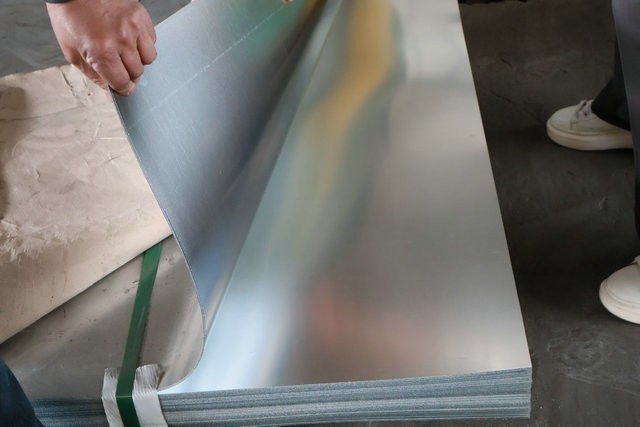 Language
▼
Language
▼
More Language
The anti-corrosion performance of galv steel sheet is excellent, mainly due to the zinc layer on its surface. The following is a detailed analysis of the anti-corrosion performance of galv steel sheet:
The galvanized layer forms a dense protective layer on the surface of the steel plate, which can effectively isolate the contact between the steel plate and corrosive media (such as oxygen, water, etc.), thereby slowing down or preventing the occurrence of corrosion process. Zinc is more reactive than iron, and in corrosive environments, zinc will preferentially undergo oxidation reactions to protect the steel plate substrate from corrosion. This effect is called sacrificial anode cathodic protection method, which can significantly extend the service life of steel plates.
Galv steel sheet can maintain good corrosion resistance even in harsh environments such as humidity and salt spray. The zinc layer can effectively prevent the oxidation and corrosion of steel plates, extending their service life. The thickness and uniformity of the galvanized layer have a significant impact on the anti-corrosion performance. Generally speaking, the thicker the zinc layer, the better the anti-corrosion performance. Meanwhile, a uniform distribution of zinc layer can ensure that the steel plate receives good protection in all parts. Galv steel sheet are suitable for various corrosive environments, such as marine environments, industrial atmospheric environments, etc. Its excellent anti-corrosion performance enables it to maintain stable performance in these environments.

The thickness, uniformity, and adhesion of the zinc layer are key factors affecting the anti-corrosion performance of galv steel sheets. A high-quality zinc layer can provide better protection. Different usage environments have different requirements for anti-corrosion performance. For example, in marine environments, due to severe salt spray corrosion, it is necessary to choose galv steel sheet with higher anti-corrosion performance. The processing also affects its anti-corrosion performance. For example, during cutting, welding, and other processing, it is necessary to pay attention to protecting the zinc layer from damage to ensure that its anti-corrosion performance is not affected.
China galvanized plate manufacturer: Boxing Shuangshengda Steel specializes in galvanized sheet, galvanized steel plate,Colour steel plate etc.We have a full range of product specifications and types, low prices, and more than 20 years of experience, worthy of your trust